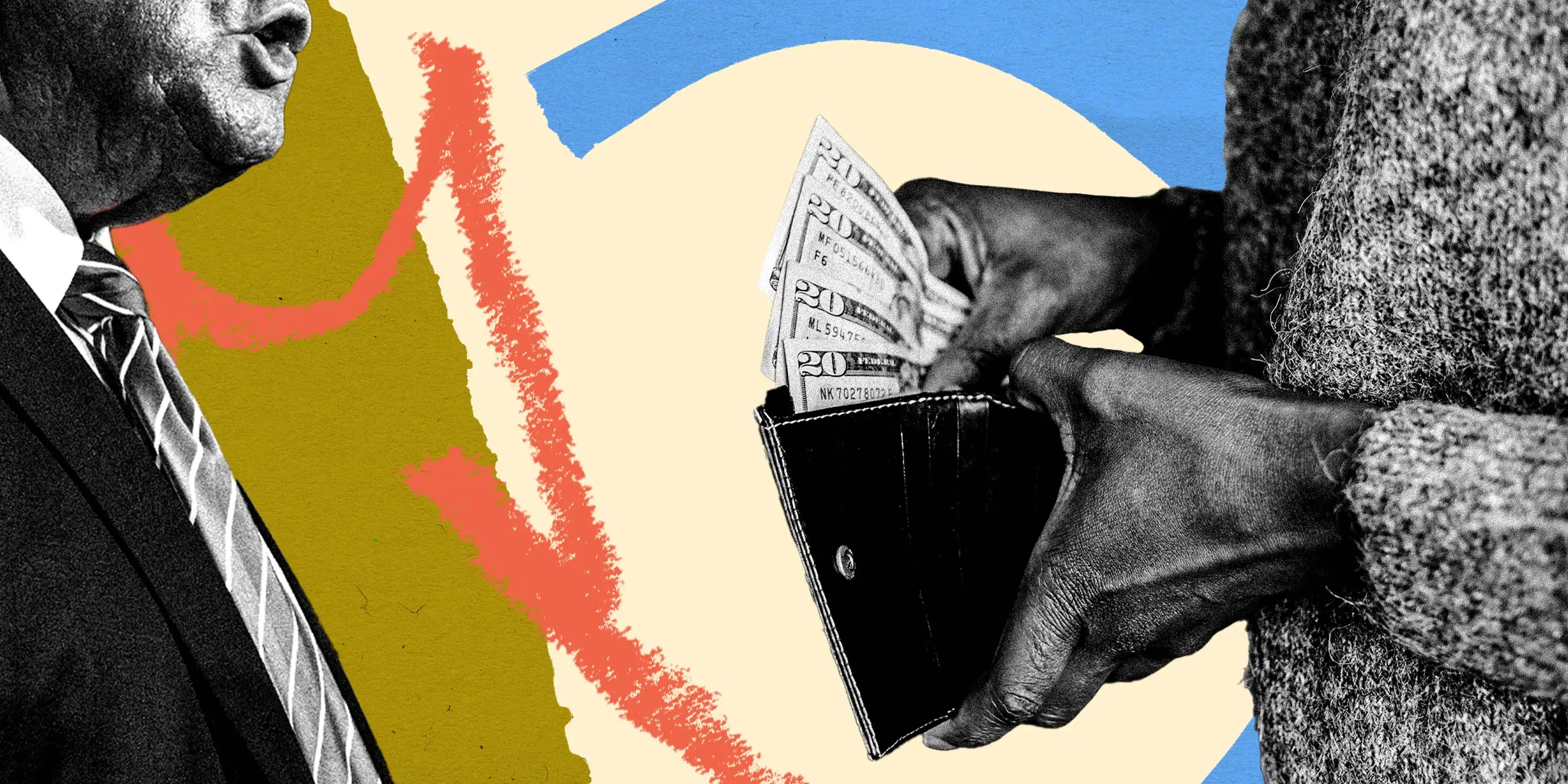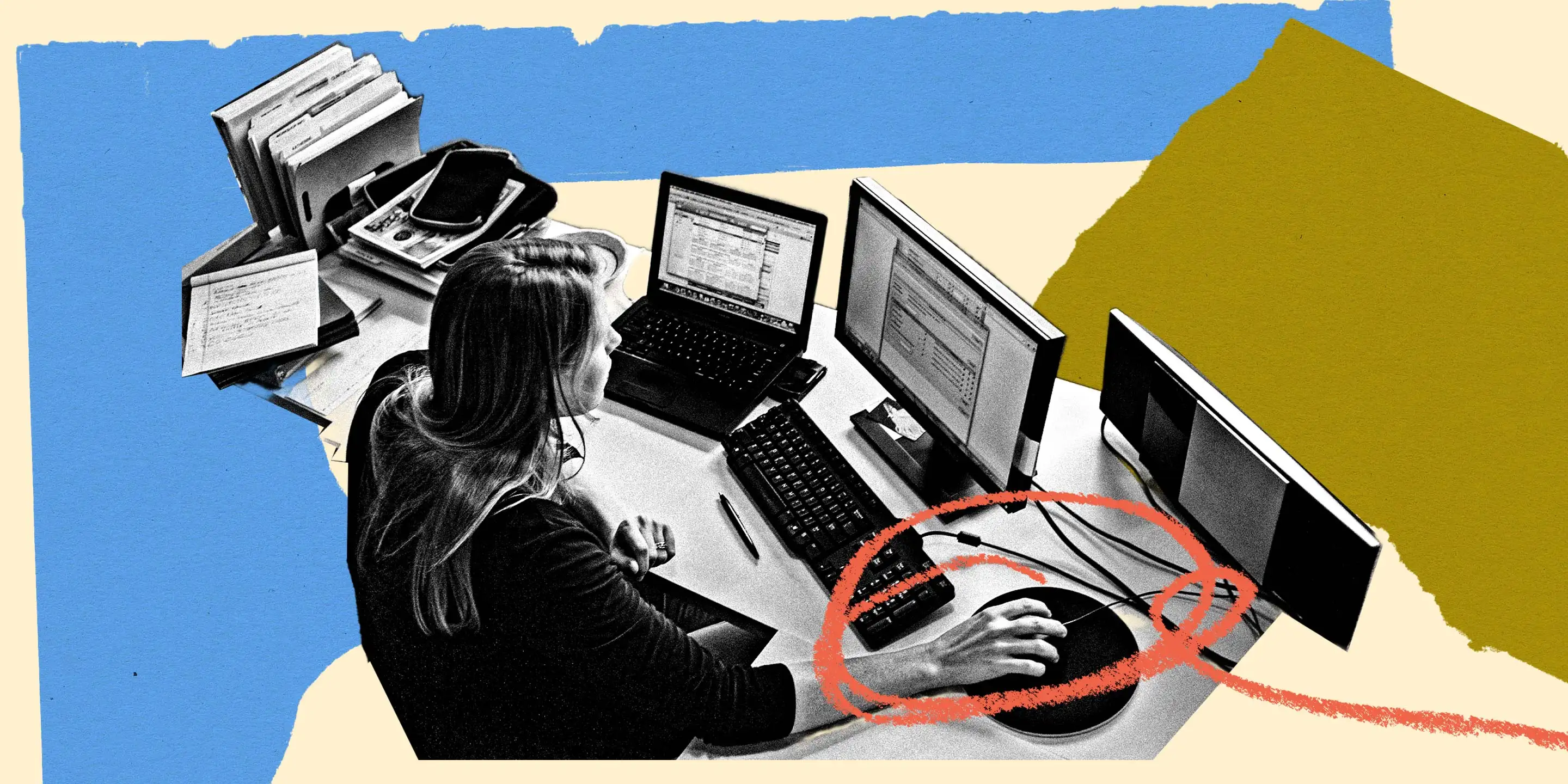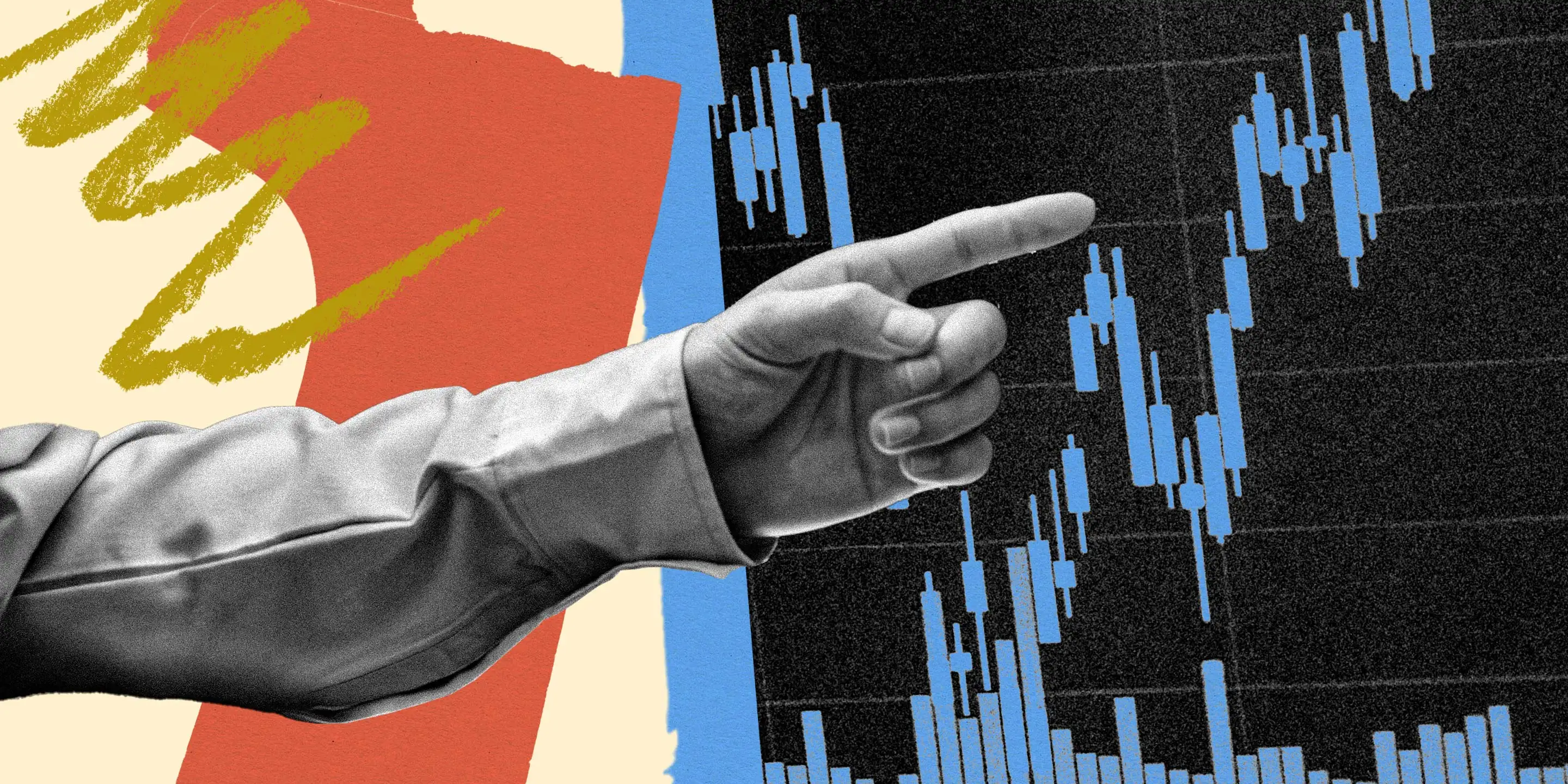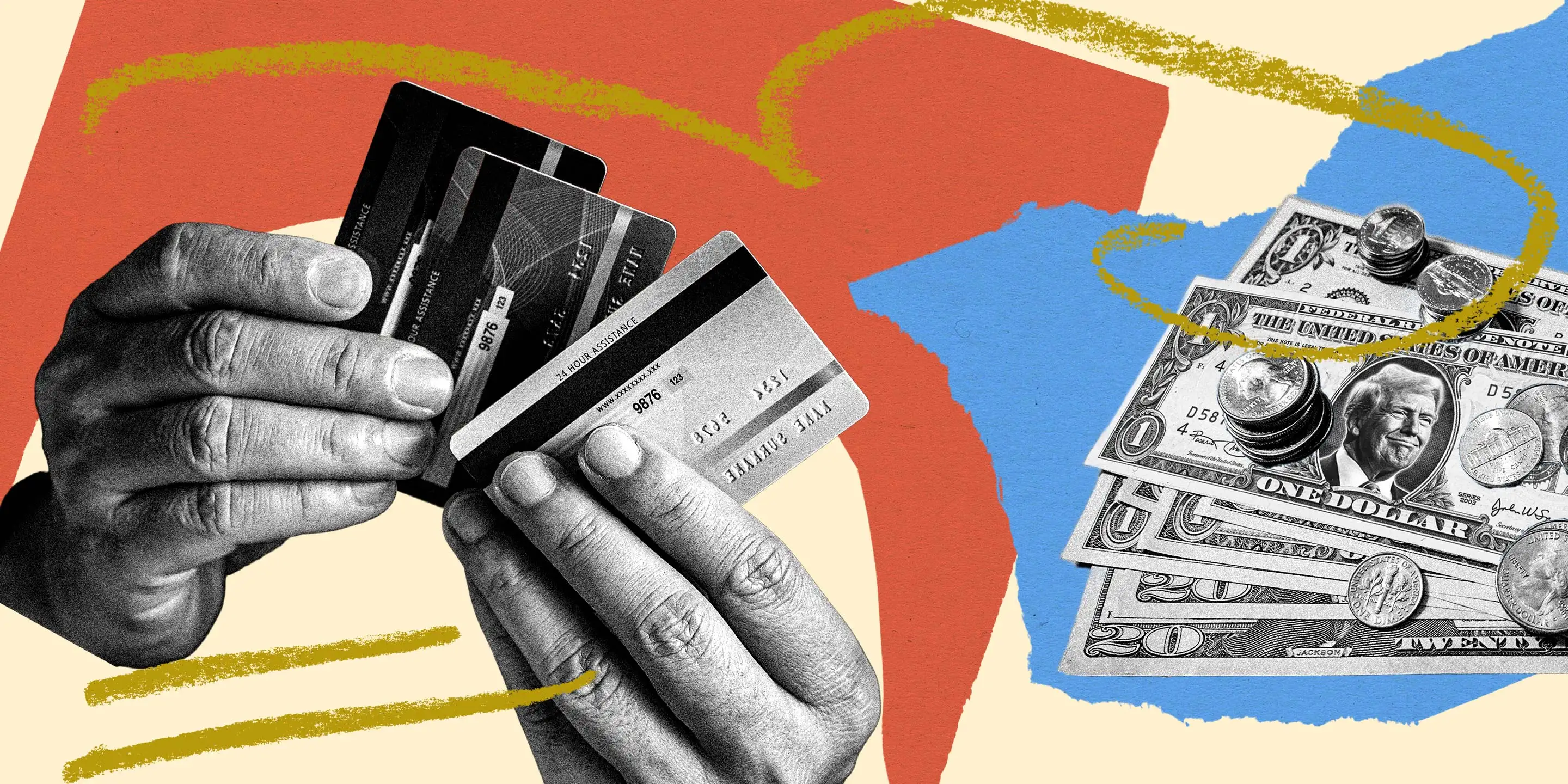The American Dream comes with a steep price tag today.
Inflation is pummeling our gas and grocery budgets. High rates of interest are eroding our purchasing power and high-interest debt is sinking our credit. Our savings accounts are alarmingly low and our mortgage payments are egregiously high — and don’t even get us began on the price of eggs.
Our collective balance sheet feels pretty off-kilter in the mean time, and regardless of where you stand politically, the transition from one contentious presidency to a different only adds to the unease.
Possibly you voted for Donald Trump, hoping his policies will let average Americans loosen their purse strings. Possibly you didn’t, and economic uncertainty is just one among many anxieties clanging around your subconscious. Possibly you checked out one or two election cycles ago and easily need to get through the day.
The purpose is, no matter how you’re feeling about our forty seventh president — terrified, emboldened, apathetic — your wallet might be feeling the squeeze. And the neatest thing you possibly can do right away is get your money right.
Below, you’ll discover a guide to navigating your funds in an era of Trump 2.0, crafted by Money’s expert editorial team. Much of what you’ll read here is rooted in the identical guidance we’ve been sharing for over five many years, tweaked for today’s challenges.
No person knows what the subsequent 4 years will bring, but chances are high, they’ll be just as bumpy because the last. Construct a stronger future for yourself, and the cultures and communities you care about, with this as your roadmap.
— Kristen Bahler
Trim your spending

Olive Burd / Money; Getty Images
With a latest administration taking office and inflation beginning to ease, now’s the time to rethink where your money goes.
Time-tested savings advice — make a budget and reduce on nonessentials — still applies. But this yr, one strategy stands out: Pay close attention to how and where the products you purchase are made.
President-elect Trump has threatened sweeping tariffs on imports, particularly on goods from China. While the precise plans remain unclear, the experts who spoke to Money agree that tariffs will drive up prices for on a regular basis Americans, especially for consumer tech, household goods and apparel. Knowing where your products are made can make it easier to avoid costly increases by selecting alternatives not affected by latest tariffs.
This habit of looking closer at your purchases — and questioning whether you would like them in any respect — has one other major perk: It’s a primary step toward more ethical consumption.
Aligning your spending together with your values can offer you a way of power and agency, says Tanja Hester, creator of Wallet Activism. “It’s very reasonable as a person to ask, ‘Okay, but what can I do?’” she says. Apart from political activism, “an enormous a part of what each of us can do really has to do with our financial decisions.”
Mindful spending doesn’t should cost more. Often, it starts with buying less stuff. If you truly need something, whether it’s a house appliance or your next winter fit, consider buying used or selecting local options. These small changes can make it easier to stay on budget and honor what matters most to you.
In 2025, trimming your spending isn’t nearly saving money — it’s also about making smarter, more intentional decisions that align together with your values.
— Adam Hardy
Read more:
Get a fat raise

Olive Burd / Money; Getty Images
Talking about pay can feel taboo, however it shouldn’t.
Communicating together with your boss about what you earn — and advocating for what you need to earn — is a vital a part of getting the salary you deserve. The issue? A striking variety of employees — nearly 40%, based on a recent survey — have never (as in, ever) asked for a raise.
That needs to alter in 2025. The winds could have shifted from the extraordinary leverage staff had a couple of years ago, but signs still point to a healthy job market: Greater than 6 in 10 firms plan to rent for brand spanking new roles in the primary half of the yr, based on research from Robert Half. And with wages on the rise, firms are still putting more of their budget toward raises than they were pre-pandemic. Put simply: now’s the time to be daring.
“It’s a little bit of a latest yr, latest budget[s] post-election,” says Dawn Fay, operational president at Robert Half. Employees should use that to their advantage.
How are you going to be certain that you’re one among the staff taking home a much bigger check? “The only answer is, do job,” Fay says — and take notes.
Get into the habit of often jotting down your wins, she says, from exceeding goals and volunteering for brand spanking new projects to mentoring younger employees. You’ll also need to arm yourself with research about what pay is typical for roles like yours. Then, she says, rehearse what you need to say so that you’re calm and assured.
Historically, the surest method to get an enormous pay bump has been to maneuver jobs. That’s still true in 2025, though the gap has shrunk recently, based on payroll provider ADP. Whether you’re a long-time worker or a latest hire, have a plan B if your required salary isn’t within the budget. That might mean asking for financial perks (like a bonus or childcare reimbursement) or lifestyle improvements (like flexible hours or distant work).
“Most firms are willing to barter,” Cortney Holt, senior manager of talent on the profession site Glassdoor told Money last yr. “But you’ll never know unless you ask.”
— Kaitlin Mulhere
Read more:
Benefit from an uncertain housing market

Olive Burd / Money; Getty Images
Should you’ve been patiently waiting for the precise moment to purchase a house, this yr could bring the breakthrough you hoped for.
Latest jobs, growing families and other life events are driving homeowners to loosen their grip on sought-after housing stock, giving buyers more options (and negotiating power). With mortgage rates expected to diminish slowly all year long, homeownership will finally be nearby for buyers who’ve been anxiously waiting on the sidelines.
It won’t be smooth sailing for everybody. Home prices could increase by as much as 4% this yr, based on housing experts, and even when mortgage rates dip, they’ll likely remain above 6% for the higher a part of the yr.
There’s also, in fact, numerous uncertainty in regards to the impact the Trump administration can have on the housing market, and the U.S. economy as a complete. Some proposals from the campaign trail, like creating tax incentives for builders and scaling back on construction codes and regulations, could further improve the market’s inventory shortage. Other proposals, like tariffs on imported goods and mass deportations, could set the market back even further. Import taxes on lumber, appliances and other constructing materials could increase the fee of housing. And since roughly 30% of construction laborers within the U.S. are immigrants, progress on much-needed latest inventory may very well be delayed if even a small portion of the labor pool is expelled.
Should you plan to purchase a house this yr, your best bet is to be financially prepared — regardless of the economic outlook. Taking steps to enhance your credit rating, reducing high-interest debt and saving up for a large down payment will mean you can make the most of opportunities after they arise.
– Leslie Cook
Read more:
Save for a stress-free retirement

Olive Burd / Money; Getty Images
As we enter a latest presidential era, many Americans will profit from provisions passed within the last one. Several parts of the SECURE 2.0 Act, a significant retirement savings law signed by Joe Biden in late 2022, are taking effect in 2025.
Account holders between the ages of 60 and 63 snag the most important perks here: Through a latest “super” catch-up 401(k) contribution, they’ll put away the biggest maximum annual contribution ever: a whopping $34,750. But 401(k) auto-enrollment and coverage for part-time employees are expanding, too, and a latest federal database recently launched to assist people find their lost and forgotten retirement advantages.
These policies construct upon a slate of changes that aim to make saving smoother for the 4.1 million Americans expected to retire this yr. SECURE 2.0 has enabled employers to match staff’ student loan payments in a 401(k), 403(b) or SIMPLE individual retirement account; loosened restrictions around hardship withdrawals; encouraged firms to create pension-linked emergency savings accounts and more. In December, Congress passed a separate law expanding Social Security advantages for thousands and thousands of individuals with pensions. Oh, and did we mention Trump has proposed eliminating taxes on Social Security income?
There’s so much happening, and it should all motivate you to start out preparing to your golden years ASAP. Whether meaning consulting a financial planner, joining the record-high variety of 401(k) millionaires or making this the yr you really open a Roth IRA, put within the work now. You’ll thank yourself later.
— Julia Glum
Read more:
Tap into alternative investments

Olive Burd / Money; Getty Images
When gauging the incoming administration’s impact on traditional investments, the one certainty is uncertainty. Take, for instance, Trump’s expected tariffs. Those would adversely impact consumer prices, most experts agree, but how they’d materialize within the stock market is less clear. And while his plans to spice up the economy by deregulating the financial sector are bullish, the effect may very well be stymied if the Federal Reserve shifts its rate of interest policy.
Despite his “drill, baby, drill” mantra, energy stocks are facing a difficult yr because the oil and gas industry grapples with record-high production and waning demand. And despite rubbing elbows with Elon Musk, Mark Zuckerberg and other Silicon Valley bigwings, Trump’s anticipated antitrust agenda could see the breakup of tech monopolies — a sector that’s overdue for a price correction.
Enter alternative assets. Expect gold to proceed its historic run as geopolitical instability — perhaps aggravated by a president who’s expressed interest in annexing Canada, Greenland and the Panama Canal — drives up the price of precious metals even further. If inflation begins to tick up, that’s also excellent news for gold. (Investors can get exposure with the physical metal itself, but in addition with gold mining stocks and gold ETFs.)
On the crypto front, Trump’s deregulatory platform — including support for bitcoin mining and opposition to the event of central bank digital currencies — has been a catalyst for the choice asset class. Last month, the worth of bitcoin crossed $100,000 for the primary time, and the cryptocurrency is up around 40% since Election Day. Investors who’re more comfortable with equity markets can gain exposure through spot bitcoin ETFs just like the iShares Bitcoin Trust ETF (IBIT) or the VanEck Bitcoin ETF (HODL), each of that are up over 101% up to now yr and prone to proceed rallying under Trump.
Financial advisors recommend allocating not more than 5–10% of your overall portfolio to alternative investments like gold and crypto. But for now, there’s more clarity on those two asset classes’ projected near- and medium-term performances than there may be for any of the stock market’s 11 sectors. With the unpredictability of Trump’s policies, the performance of traditional asset classes have a more cloudy future, and consequently, alts may have the ability to post outsized gains.
— Jordan Chussler
Read more:
Protect your assets

Olive Burd / Money; Getty Images
Desperation over rising rates is driving more people to skip insuring the most important assets they own. But that is one trend you shouldn’t take part 2025, regardless of your financial situation.
Double-digit growth in home insurance premiums has driven down the variety of uninsured homes within the U.S. – to greater than 6 million, based on the Consumer Federation of America, which represents greater than 7% of all homes. Automobile insurance has also risen in cost — over the previous few years, experts say, the typical payment has gone up by about 25%. In some states, premiums are up by greater than 50%.
Resist all temptation to affix either uninsured group, even when rates rise further, as some analysts predict. A house that lacks insurance exposes its owners to all the things from forced-place insurance by their mortgage lender to liability lawsuits, foreclosure and homelessness. Driving without insurance also comes with financial peril, including the chance of fines and a suspended license when you’re caught “driving naked” – industry lingo for taking the wheel without insurance.
As a substitute of eliminating vital coverage, take steps to cut back its cost. Weigh the financial loss you might bear within the event of losing your wheels or your property, and adjust your deductible to that quantity, thus reducing your premiums. Then, shop around for coverage — prices vary significantly between carriers — and consider bundling your property and auto insurance for a reduction.
— Paul Reynolds
Read more:
Polish your paper trail

Olive Burd / Money; Getty Images
There’s no reason for you to not know exactly what’s in your credit history: You’ll be able to pull one free credit report from each of the three major credit bureaus weekly using AnnualCreditReport.com. And since those reports are used to generate your credit scores, which lenders rely on to find out your worthiness as a borrower, it’s crucial to watch them.
Don’t like what you see? Make improving your credit a 2025 pet project. After you’ve checked your credit report for errors and addressed any inaccuracies, try reducing your utilization ratio, downgrading a little-used card or becoming a certified user on another person’s account. Take the time to know what your annual fees go toward and re-evaluate whether your current cache of cards is sensible to your life.
You’re not alone — although income growth has helped lessen the sting for a lot of borrowers, the U.S. is pretty firmly in a debt crisis — and also you’re definitely not powerless, especially relating to arming yourself with information. In 2025, this implies maintaining a tally of the news coming out of Congress, which is gearing up for a battle over expiring Tax Cuts and Jobs Act provisions that might impact your wallet for years to return. Might we advise subscribing to Money’s every day newsletter for the newest on this and other key issues? Just an idea.
— Julia Glum